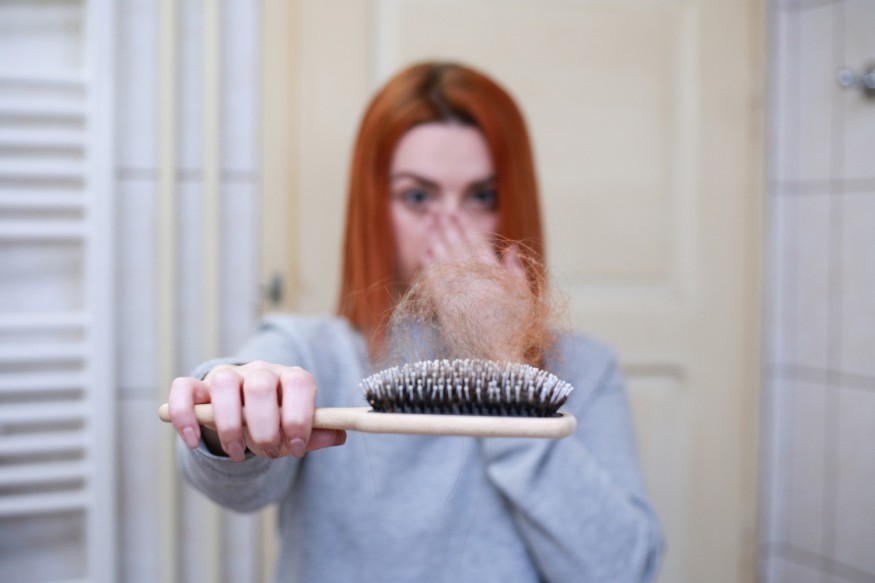Juli Fisher, a travel nurse who cares for COVID-19 patients in an assisted living residence, had the infection in March and has experienced the crippling symptoms herself. But what she did not expect after several weeks into her illness is hair loss.
In a Facebook group she joined, other people whose symptoms have not gone away. She met others who have experienced hair loss too.

Rachel Baum from Saratoga Springs New York said she had COVID-19 symptoms for more than 100 days already. Like Fisher, her hair is falling out as well.
It is just now that the link between hair loss and COVID-19 is started to be reported and recognized in research. According to health sciences clinical instructor Dr. Sara Hogan of the David Geffen School of Medicine at UCLA, the timeline given by people like Fisher and Baum makes sense for patients that have experienced 3 to 5 months of illness.
Read Also: Is Hair Loss a Cause of Anxiety?
The Link Between COVID-19 and Hair Loss
According to the American Academy of Dermatology, hair loss can be caused by hereditary factors or age, hormonal imbalances, medication, health conditions, and stress.
The type of hair loss that Fisher, Baum, and other patients with COVID-19 are experiencing is called telogen effluvium, which is only temporary hair loss caused by emotional or physical stress, high fever, illness, and weight loss of more than 20lbs.
Unlike the male pattern baldness, in which men experience hair loss on a specific area, telogen effluvium involves shedding all over the head with 50 or more than 100 hairs that people usually lose per day.
Dr. Hogan said that there are three cycles in the hair's life. 90% of it is for the time growing, 5% for resting phase, and 10% for shedding. However, shedding could increase up to 50% if a person experiences a stressful event or shock.
"So you can have this major event, and then it can be about 3 to 5 months later that all of a sudden, you start to notice the shedding. And we're in the time frame for that with regard to the pandemic," she said.
She also added that at this time, hair loss might become common as new COVID-19 patients who have hair loss come every week to the hospital.
Dr. Gregory A. Poland, an infectious disease expert at Mayo Clinic, agrees with her and said that this type of hair loss is linked to "severe illness, autoimmune disorders, and people who have a stroke or heart attack."
Read Also: David Beckham's Case of Missing Hair Sparks Questions on the Best Hair Loss Treatment
How to Treat Hair Loss?
Understandably, hair loss can affect one's self-image and self-esteem. But experts advise people not to be embarrassed or try to handle it by themselves.
They urge people to seek help from a professional such as primary care doctor or a dermatologist to rule out other causes of hair loss like medications, insufficient nutrients, and hormone imbalances caused by lack of sleep or unhealthy diet.
Hogan says that patients may ask their doctors if vitamin D or supplements like biotin or a high-protein diet may help. But in the meantime, she said that people might try to ease their stress if they can to avoid hair loss.
Read More: Scientists Found New Baldness Cure that Could Trigger Regrowth in Just 4 Months!
© 2026 ScienceTimes.com All rights reserved. Do not reproduce without permission. The window to the world of Science Times.












